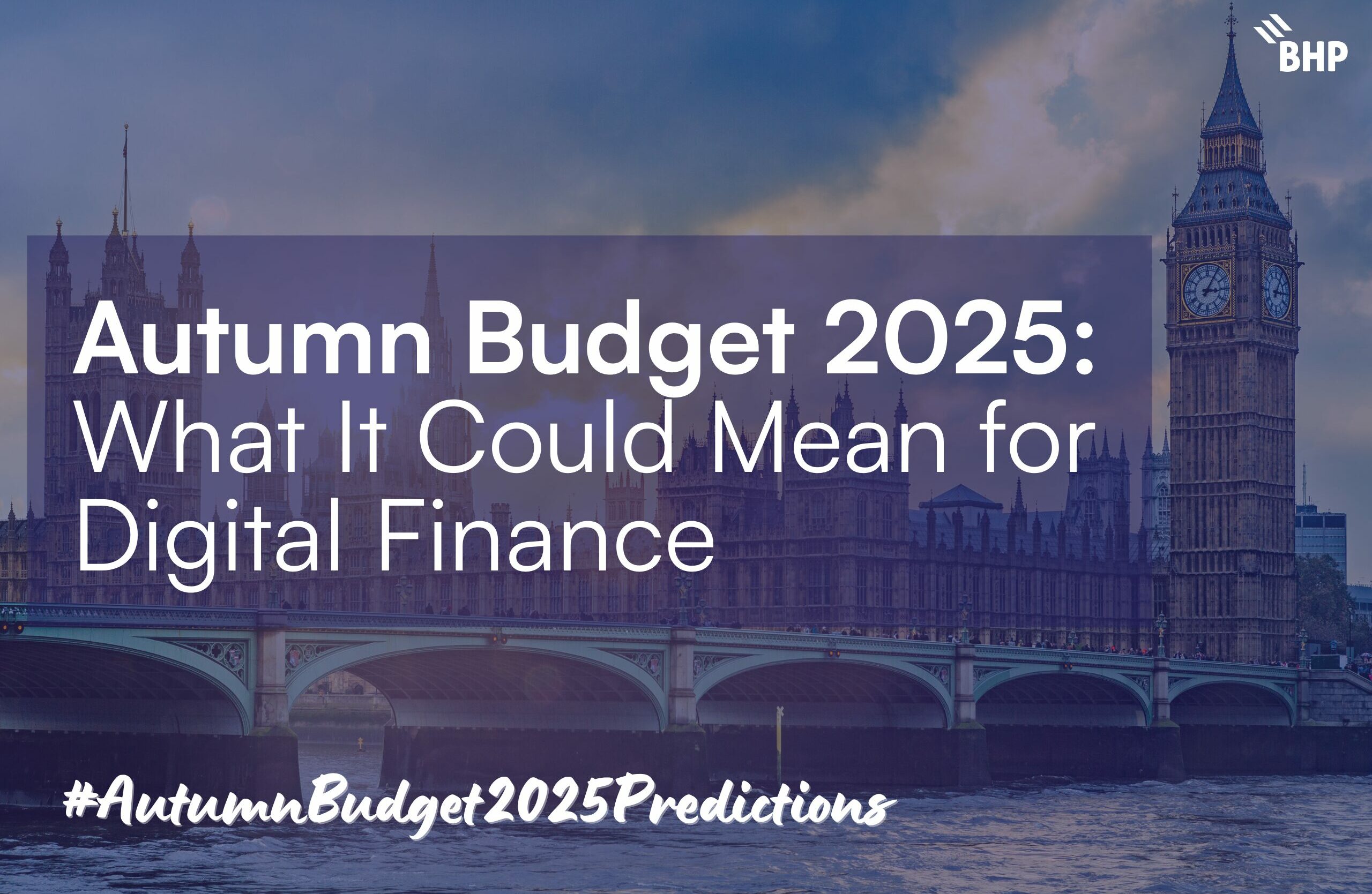With the Autumn Budget just around the corner, businesses and finance professionals are watching closely. From taxes to pensions, the decisions made could have far-reaching effects on investments, innovation, and digital finance. We asked two experts to share their predictions and what clients are hoping to see.
Mark Stanton – Digital Finance Partner
Whilst inflation and wage growth are higher than expected, September’s public finances data is unlikely to prevent the widely anticipated tax hikes and spending cuts. The question is whether the Chancellor will target the big taxes -PAYE, National Insurance, and VAT- or pursue more creative solutions.
The issue with the more creative category is how long it could take to implement these, as clearly, the funds are needed in the coffers as soon as possible.
A ‘Wealth Tax’ has been much talked about in recent years, but would be a burden to implement, and given the short timeframe between budget and the new tax year, it would be bold to say this comes in from 6 April 2026, which would defer any funds coming in on this until at least January 2028.
Another hot topic is ’Pension tax’. Here, the admin could be passed on to pension fund managers; for example, the chancellor could implement a compulsory annual fund levy of 0.5% and dictate when it needs to be paid, e.g., July following the tax year. Again, this is not without complications, as pensions include a multitude of assets; however, it would raise billions for the government.
The chancellor could create a global tax for employees and investors alike. Here we would see Income Tax (e.g. PAYE) and National Insurance combined. This would give a new rate of Basic Rate £28%; Higher rate 42%; and additional rate 47% (based on current rates). This would be combined with an employer’s tax of 15% to replace employers’ NI (based on the current rate). The chancellor could badge this as keeping the status quo for employees, as pay packets would be largely unaffected. However, it would also bring in other income such as rents, investment income, sole trader profits and partnerships (which the Chancellor may decline to mention), such that all income is taxed at the same rate – increasing the tax collected significantly.
Dermot Lucid – Digital Finance Partner
As the Autumn Budget approaches, several changes are being closely watched by businesses and individuals:
-
Class 4 National Insurance on rental profits – this could affect landlords and property investors, increasing their annual tax obligations.
-
Reduced pension relief for higher-rate taxpayers – a cut from 40% would impact long-term retirement planning and the incentives to save.
These measures could have a direct effect on both personal finances and business planning, so staying informed and reviewing your position in advance is more important than ever.
What Clients Are Hoping For
While speculation dominates the headlines, most clients are looking for certainty and stability:
-
No further increases in employment taxes – keeping pay packets predictable is a key priority.
-
A reduction in corporation tax – although widely seen as unlikely, it remains a top wish for businesses.
Ultimately, the message is clear: clients want clarity and predictability rather than new complexities that could disrupt financial planning. Taking time to review your finances now can help you navigate whatever changes are announced.
This material is for informational purposes only and should not be relied upon as professional advice.



